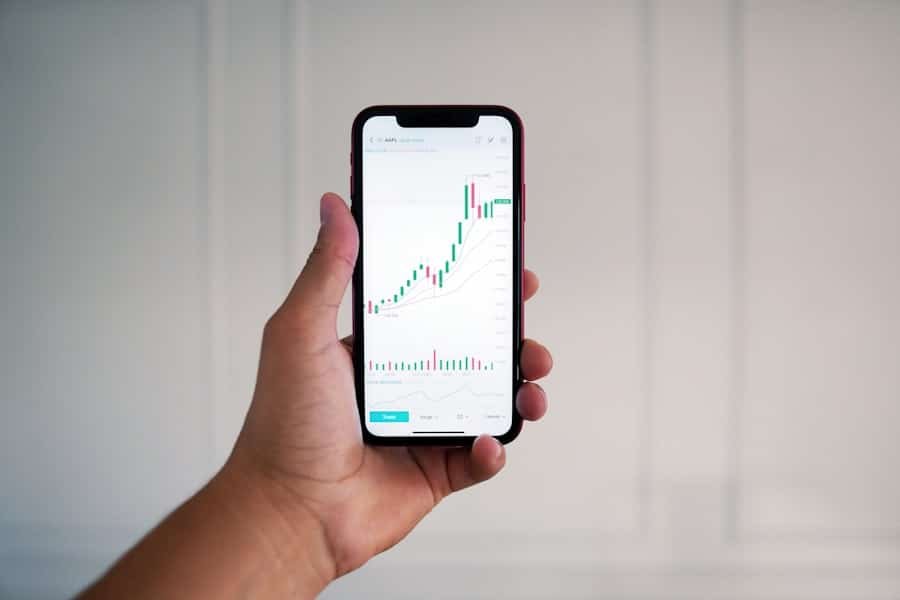Share buyback programmes, also known as share repurchase programmes, are strategic initiatives undertaken by companies to repurchase their own shares from the marketplace. This process involves a company buying back its outstanding shares, which can subsequently be held in treasury or cancelled, thereby reducing the total number of shares available in the market. The primary objective of such programmes is to enhance shareholder value by increasing earnings per share (EPS) and providing a return of capital to shareholders.
The mechanics of a buyback can vary; companies may opt for open market purchases, tender offers, or private negotiations, each with its own implications for pricing and shareholder engagement. The rationale behind share buybacks is multifaceted. Companies often initiate these programmes when they believe their shares are undervalued, signalling confidence in their future prospects.
By reducing the number of shares in circulation, the remaining shares may experience an increase in value, benefiting shareholders. Additionally, buybacks can serve as a tool for managing capital structure, allowing firms to adjust their debt-to-equity ratios. This strategic financial manoeuvre can be particularly appealing in times of excess cash flow or when investment opportunities are limited.
Summary
- Share buyback programmes involve a company repurchasing its own shares from the open market.
- Companies implement share buyback programmes to signal confidence in their stock, support share price, and utilise excess cash.
- Share buyback programmes can benefit shareholders by increasing earnings per share and potentially boosting stock prices.
- Share buyback programmes can impact company financials by reducing the number of outstanding shares and increasing earnings per share.
- Criticisms of share buyback programmes include concerns about short-term focus, market manipulation, and lack of investment in long-term growth.
Reasons for Implementing a Share Buyback Programme
There are several compelling reasons why a company might choose to implement a share buyback programme. One of the most prominent motivations is the desire to return excess cash to shareholders. When a company generates substantial profits but lacks viable reinvestment opportunities, it may opt to distribute this surplus through buybacks rather than dividends.
This approach can be more tax-efficient for shareholders, as capital gains from increased share prices may be taxed at a lower rate than dividend income. Another significant reason for initiating a buyback programme is to signal confidence in the company’s future performance. When management believes that the stock is undervalued, repurchasing shares can convey a strong message to the market about the company’s prospects.
This can help bolster investor sentiment and potentially lead to an increase in share price. Furthermore, buybacks can also serve as a mechanism for offsetting dilution caused by employee stock options or other equity compensation plans, ensuring that existing shareholders do not see their ownership stakes diminished.
Impact of Share Buyback Programmes on Shareholders

The impact of share buyback programmes on shareholders can be profound and multifaceted. One immediate effect is the potential increase in earnings per share (EPS). By reducing the number of outstanding shares, the same level of earnings is distributed over fewer shares, resulting in a higher EPS figure.
This can enhance the attractiveness of the stock to investors and analysts, potentially leading to an appreciation in share price. For long-term shareholders, this increase in value can translate into significant capital gains. Moreover, buybacks can provide a form of liquidity for shareholders who wish to exit their investment without causing a significant drop in share price.
When companies repurchase shares, they create a market for their own stock, allowing shareholders to sell their holdings back to the company at prevailing market prices. This can be particularly beneficial during periods of market volatility when external buyers may be scarce. Additionally, shareholders who choose to retain their shares may benefit from the enhanced value created by the buyback programme, aligning their interests with those of the company.
How Share Buyback Programmes Affect Company Financials
The financial implications of share buyback programmes extend beyond mere changes in share price and EPS. When a company repurchases its own shares, it utilises cash reserves or takes on debt to finance the buyback. This decision can significantly impact the company’s balance sheet and overall financial health.
For instance, if a company uses cash reserves for buybacks, it may reduce its liquidity position, potentially limiting its ability to invest in growth opportunities or weather economic downturns. Conversely, if a company opts to finance its buyback through debt issuance, it may increase its leverage ratio, which could heighten financial risk. While this strategy might enhance returns on equity in the short term due to reduced share count, it also raises concerns about long-term sustainability if the company faces challenges in servicing its debt obligations.
Therefore, while share buybacks can create immediate financial benefits, they must be carefully evaluated within the broader context of a company’s financial strategy and market conditions.
Criticisms and Controversies Surrounding Share Buyback Programmes
Despite their potential benefits, share buyback programmes have not been without criticism and controversy. One of the primary concerns is that companies may prioritise short-term gains over long-term growth by focusing on boosting share prices rather than investing in innovation or expansion. Critics argue that this myopic approach can undermine a company’s competitive position and ultimately harm shareholders in the long run.
Additionally, there are ethical considerations surrounding share buybacks. Some argue that companies should prioritise employee wages and benefits or invest in community initiatives rather than repurchasing shares. This perspective highlights a growing concern about income inequality and corporate responsibility.
Furthermore, during economic downturns or crises—such as the COVID-19 pandemic—companies that have engaged in aggressive buyback programmes may face backlash for failing to support employees or maintain financial stability during challenging times.
Legal and Regulatory Considerations for Share Buyback Programmes

The implementation of share buyback programmes is subject to various legal and regulatory frameworks that vary by jurisdiction. In many countries, companies must adhere to specific rules regarding how and when they can repurchase their shares to prevent market manipulation and ensure transparency. For instance, in the United Kingdom, companies must comply with the Companies Act 2006, which outlines provisions related to share buybacks, including requirements for shareholder approval and disclosure obligations.
Regulatory bodies such as the Financial Conduct Authority (FCA) in the UK closely monitor share repurchase activities to ensure compliance with market regulations. Companies must also consider insider trading laws when executing buybacks; purchasing shares while possessing non-public information could lead to severe legal repercussions. As such, companies often establish clear policies and guidelines governing their buyback activities to mitigate legal risks and maintain investor confidence.
Alternatives to Share Buyback Programmes
While share buyback programmes are a popular method for returning capital to shareholders, there are several alternatives that companies may consider. One common alternative is paying dividends directly to shareholders. Dividends provide immediate cash returns and can be particularly appealing to income-focused investors seeking regular income streams.
Unlike buybacks, dividends create an ongoing obligation for companies to maintain consistent payouts, which can foster investor loyalty. Another alternative is reinvesting profits back into the business through capital expenditures or research and development (R&D). By investing in growth initiatives, companies can enhance their long-term value proposition and potentially generate higher returns for shareholders over time.
This approach aligns with a more sustainable business model that prioritises innovation and competitive advantage rather than short-term stock price appreciation.
Examples of Successful Share Buyback Programmes
Several high-profile companies have successfully implemented share buyback programmes that have yielded positive results for both the firms and their shareholders. One notable example is Apple Inc., which has engaged in extensive share repurchase activities over the past decade. In 2021 alone, Apple announced plans to repurchase $90 billion worth of its shares as part of its ongoing commitment to returning capital to shareholders.
This strategy has contributed significantly to Apple’s rising stock price and has been well-received by investors who have benefited from both capital appreciation and dividends. Another example is Microsoft Corporation, which has consistently utilised share buybacks as part of its capital allocation strategy. The company has returned hundreds of billions of dollars to shareholders through both dividends and share repurchases since 2004.
Microsoft’s approach has not only enhanced shareholder value but has also demonstrated its confidence in future growth prospects amid a rapidly evolving technology landscape. These examples illustrate how well-executed share buyback programmes can serve as effective tools for enhancing shareholder value while signalling management’s confidence in the company’s future performance. However, they also underscore the importance of balancing such initiatives with long-term strategic objectives and responsible corporate governance practices.
If you are interested in learning more about financial strategies and decision-making, you may also find the article on competing in a highly regulated environment to be insightful. This article discusses the challenges and opportunities that businesses face when operating in industries with strict regulations. Understanding how companies navigate these obstacles can provide valuable insights into the complexities of corporate finance and investment decisions.
FAQs
What is a share buyback programme?
A share buyback programme is a corporate action in which a company repurchases its own shares from the open market, reducing the number of outstanding shares.
Why do companies initiate share buyback programmes?
Companies initiate share buyback programmes for various reasons, including to return excess cash to shareholders, signal confidence in the company’s future prospects, boost the stock price, and offset dilution from employee stock options.
How does a share buyback programme work?
In a share buyback programme, a company uses its available cash or borrows funds to purchase its own shares on the open market. The repurchased shares are typically cancelled, reducing the total number of outstanding shares.
What are the benefits of a share buyback programme?
The benefits of a share buyback programme include increasing earnings per share, boosting stock price, providing tax-efficient returns to shareholders, and improving financial ratios such as return on equity.
Are there any drawbacks to a share buyback programme?
Drawbacks of a share buyback programme can include the potential misuse of funds, a lack of investment in growth opportunities, and the possibility of overvaluing the company’s stock.
How are shareholders affected by a share buyback programme?
Shareholders may benefit from a share buyback programme through an increase in the value of their remaining shares, a higher dividend payout, and a potential reduction in the company’s cost of capital.
